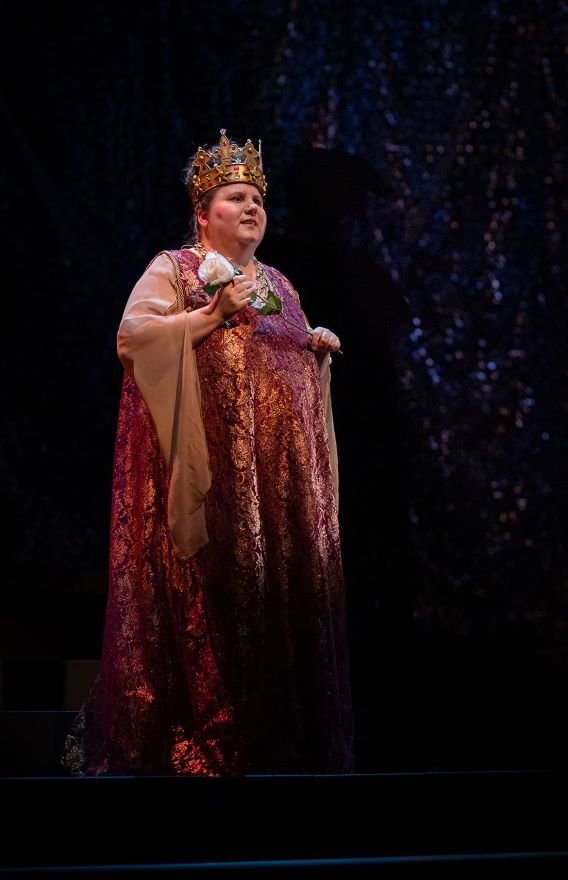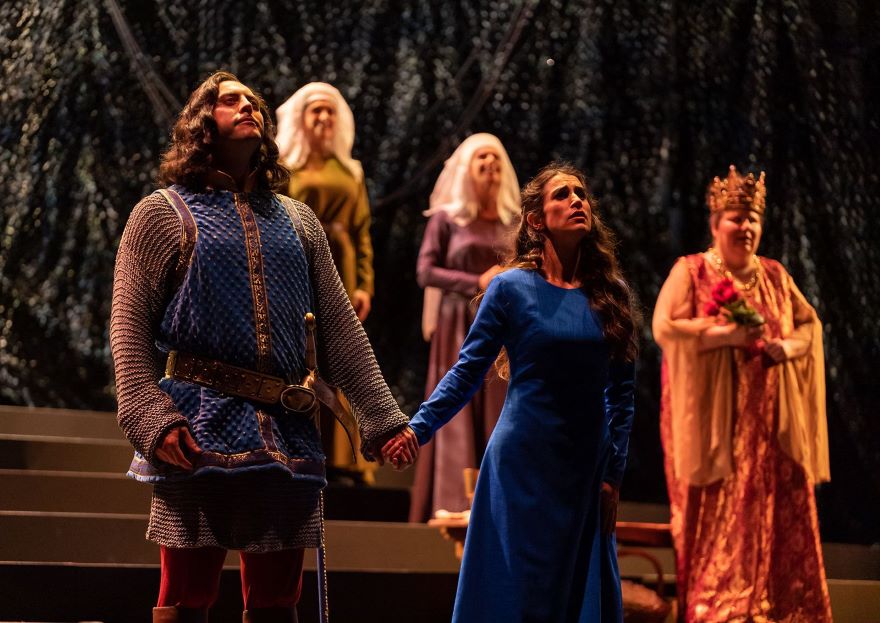An ambitious reworking of Tchaikovsky’s opera Iolanta sheds light on the experience of living with disability. But Rosalind Appleby says it comes at a cost.
Operatic enlightenment
8 April 2022
- Reading time • 6 minutesMusic
More like this
- Rewriting tradition with skill and charm
- Close encounter stirs the soul
- The great unknown
Iolanta, West Australian Opera ·
His Majesty’s Theatre, 6 April 2022 ·
Tchaikovsky’s Iolanta received its Australian premiere this week with an ambitious modern reworking by the West Australian Opera. The rarely performed opera from 1892 tells the story of the blind princess Iolanta and her father’s efforts to seek what he thinks is a better life for her.
WA Opera’s production has been created in collaboration with a focus group from Perth’s blind and vision impaired community, and tells the story from the perspective of a person living with disability. The 16 year old Iolanta is held captive not by blindness but by the ignorance and assumptions of those around her.
The creative development team (director Katt Osborne and disability awareness consultant Zel Iscel) have inserted the speaking role of Queen Iolanta, whose adult reflections on the experiences from the first 16 years of her life form interludes within the opera. The role is performed by actress Grace King who has been blind from birth. The creative team also engage with accessible storytelling, utilising scent, sound effects and surround sound to immerse the audience.

We are introduced to the character of young Iolanta in her garden prison/paradise and the sweet scent of roses emanates through the auditorium. Iolanta is unaware she is blind due to a law created by her father the King, which forbids anyone telling her. The lost Count Vaudémont stumbles on the garden and as he reveals to Iolanta the concept of light and vision, he recognises light has always lived in her heart.
Tyler Hill’s costumes place the story in the medieval era, the time of Henrik Hertz’s book, which inspired Tchaikovsky’s opera. Hill’s set is minimal: broad steps ascend from the audience to the backdrop which is a glittering drape that reflects the prison/paradise contradiction, appearing sometimes regal and sometimes like chainmail under Michael Rippon’s lighting.
In a surprise moment the chorus appears singing above us from the upper dress circles. They bring a voluminous and dramatic edge to the religious hymns and chorales that Tchaikovsky uses to heighten the drama. It’s a creative way to capitalise on the empty space from the 75 percent capacity laws currently in place, although it also emphasises moments of ensemble mistiming.
Most noticeable throughout the entire production is the pervasive dim lighting. The stage is gloomy greys and characters’ faces are in shadow, deliberately impairing our visual comprehension. In the central moment of the opera when Vaudémont falls silent and Iolanta thinks he has left her, the entire theatre is immersed in a blackout. It is a thrilling moment and my senses are on high alert.
However the minimal set and reduced vision puts increased emphasis on the music and it doesn’t always pay off. The West Australian Symphony Orchestra and conductor Chris van Tuinen are relegated to the rear of the stage behind the backdrop so their lights don’t interfere with the darkened auditorium, and they sound muted throughout the entire opera. I miss the bristle of Tchaikovsky’s string writing, the crispness of the wind birdcalls and the warm glow of the brass chorales.
The pressure also shows in the predominantly young cast as they struggle with the uneven rhythms of the awkward English translation and the high level technique Tchaikovsky requires.

Fortunately Perth soprano and Curtis Institute of Music graduate Elena Perroni is in comfortable territory as Iolanta and her endlessly glowing phrases and petite fragility make a compelling combination. Adrian Tamburini as King René is also excellent; stentorian and crisp with phrases exquisitely shaped. Matthew Reardon stepped in with two days notice to replace Paul O’Neill as Vaudémont and is endearingly tender with Iolanta but struggles vocally. Lachlann Lawton’s bright tenor suits the role of Duke Robert but he doesn’t move naturally on stage, resorting to stock gestures. Simon Meadows is a powerful voice and presence as the Doctor, and Iolanta’s trio of “carers” are sung a little unevenly by Chelsea Burns, Fiona Campbell and Brigitte Heuser.
Grace King is superb as Queen Iolanta, declaming her (occasionally long-winded) speeches with compelling sincerity. And this is where the production shines; by engaging with the lived experience of vision impaired people, profound themes of deceit, self determination and spiritual illumination are revealed.
It is timely to be looking at the world from different angles. Iolanta’s progression from dark to light is given a shock twist in the final moments that will take your breath away because it feels so right.
And, despite the problems in this production, it also feels deeply satisfying to witness one of WA’s major cultural institutions engaging deeply with a narrative of inclusiveness.
Iolanta continues until 9 April 2022.
Pictured top: Elena Perroni as Iolanta, surrounded by her three attendants. Photo Clinton Bradbury
Like what you're reading? Support Seesaw.






